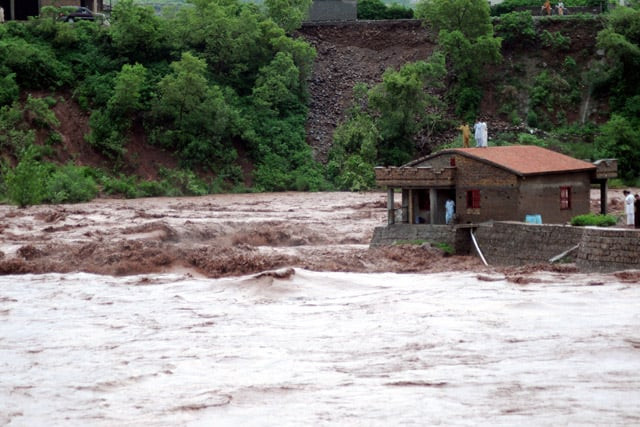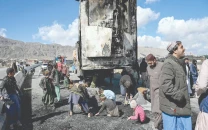No respite from the rain
As is typical in Pakistan, efforts will only be ramped up once disaster is on hand.

No respite from the rain
The magnitude of the task facing the federal, provincial and local governments as well as aid agencies will only multiply in the coming days and weeks. Already most of the deaths attributed to the rains have been caused by gastroenteritis and that number will only rise. There is also a danger that waterborne diseases like cholera, dysentry and dengue may spread among the population. On top of that, food supplies also need to reach stranded families. The distribution of relief goods has been completely halted for the past few days because of the severity of the rains, while many people are unable to leave flooded towns because of a lack of transport.
While there can be no substitute for government action, private citizens and organisations will have to try and fill the void as best as they can. This means donating and transporting non-perishable food supplies, water and medicines to all those who have been affected. And we also have to make sure that the plight of displaced people is not forgotten once the monsoon season is over. Rehabilitation is a long process and, with the suffering from last year’s floods still continuing, the fallout of this latest tragedy needs to be minimised.
Published in The Express Tribune, September 13th, 2011.



















COMMENTS
Comments are moderated and generally will be posted if they are on-topic and not abusive.
For more information, please see our Comments FAQ